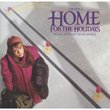| All Artists: Maurizio Muraro, Enrico Fissore, David Cangelosi Title: Puccini - Tosca / Gheorghiu, Alagna, Raimondi, Antonio Pappano (2001 film) Members Wishing: 0 Total Copies: 0 Label: EMI Classics Release Date: 11/20/2001 Genres: Soundtracks, Classical, Broadway & Vocalists Styles: Opera & Classical Vocal, Musicals Number of Discs: 2 SwapaCD Credits: 2 UPCs: 724355717320, 724355717351 |
Search - Maurizio Muraro, Enrico Fissore, David Cangelosi :: Puccini - Tosca / Gheorghiu, Alagna, Raimondi, Antonio Pappano (2001 film)
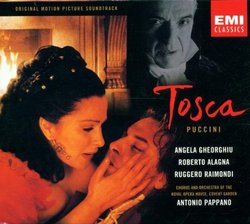 | Maurizio Muraro, Enrico Fissore, David Cangelosi Puccini - Tosca / Gheorghiu, Alagna, Raimondi, Antonio Pappano (2001 film) Genres: Soundtracks, Classical, Broadway & Vocalists
Tosca has been well-served on CD, with excellent stereo versions by Renata Tebaldi and Leontyne Price, as well as the definitive monophonic Maria Callas interpretation on EMI. What lifts this new Tosca from the pack of als... more » |
Larger Image |
CD DetailsSynopsis
Amazon.com Tosca has been well-served on CD, with excellent stereo versions by Renata Tebaldi and Leontyne Price, as well as the definitive monophonic Maria Callas interpretation on EMI. What lifts this new Tosca from the pack of also-rans is Angela Gheorghiu's intense portrait of the heroine. She sings with sweep and passion, convincing you of Tosca's varied emotional states, from love and jealousy to honor and desperation. Her stabbing scene is chilling; she spits out the repeated word "Mouri" (die) with terrifying power. Only in a slightly bumpy "Vissi d'arte" does she fall ever-so-slightly short, wanting the fullness of a true spinto voice to fill out Puccini's arching line. Roberto Alagna is a convincing Cavaradossi, singing better than he has in some of his recent recordings. Only occasionally does he sound strained, and he lets loose some thrilling high notes. As Scarpia, Ruggero Raimondi is a nasty villain. Antonio Pappano leads a swift-moving, dramatic performance. This nicely packaged set is billed as the soundtrack of a movie version of the opera, but it stands on its own as a dramatic performance of a dramatic opera. --Dan Davis Similarly Requested CDs
|
CD ReviewsThe Best Tosca in 40 Years? Rodney Hrvatin | Adelaide, South Australia Australia | 12/18/2001 (5 out of 5 stars) "I have never known a recording of a standard opera to have so much anticipation. Let's face it, this trio (Pappano, Alagna and Gheorghiu) have already stamped their mark on the Puccini canon with their recordings of "Trittico", "Boheme" and "La Rondine" and all have received rave reviews. So when this illustrious trio let it be known that "Tosca" was next on the agenda, you can imagine the buzz. For many, it has been nearly 40 years since a "classic" recording of this work has been recorded (The Karajan/Price set). Some go even further back to the mono years of Callas. While I certainly don't deny the validity of either of these recordings there are faults on both. Callas' first act is unclear and garbled, whilst Di Stefano seems to be merely singing his notes. However, the dramatic impact of the work as a whole is great. Karajan's set has a better Tosca (Leontyne Price), and Di Stefano actually feeds off her much better than his earlier partner. Also the Scarpia of Taddei is amazing (especially his Act 2). Of course, Karajan himself provides the most dramatic reading around. So how does this set compare with either of these? The simple answer is- very easily. Where this set surpasses the others is the depth of characterisation, especially of Cavaradossi. Too many tenors portray him as a character with a couple good songs and not much else. Alagna fleshes out the character, inflicting him with a humanity rarely heard on record. His Act 3 Cavaradossi is petrified of his fate long before he hits the final note of his aria. In fact, it's there right from the start. When he realises he is free you can almost see the wave of relief wash over him. Alagna's may not be the most perfect of performances but it is one that is far more realistic than many others. Ruggero Raimondi has a long history with Scarpia and his is a cold, calculating personification. Where as Taddei had a viciousness about his singing, Raimondi shows that Scarpia is as flawed as the next man. His entrance in Act 1 is electrifying (although I must say that Taddei's death scene is much more gory- you can almost hear the blood coming from his mouth!). Then there is Gheorghiu. With the weight of a thousand predecessors on her shoulders, she tackles this role with a force all her own. Like Alagna, there is a real sense of character here. I agree with previous reviews on this page citing her "Muori" in Act 2 as a highlight. Real venom in those words. Her strength lies not in her aria (beautifully sung, but not as mesmerising as Price) but the surrounding matter. She has a real chemistry with Alagna (no surprises there) and the love element shines through. Also her hatred of Scarpia is equally obvious. Pappano's conducting is tight but lacks just the final edge of drama that Karajan has (his final tempi for Acts 1 and 3 are a shade too fast) but keeps the whole process moving along well. The chorus and supporting cast are excellent as well. Ignore comments about the Covent Garden orchestra being below par, they aren't. They play this score as well as any other major orchestra. Final kudos must go to the producer for actually having the cannon in Act 1 in the distance as it is supposed to be, and not blowing out the back wall of your bedroom. The balance is excellent with a full and rich sound throughout. This recording is well worth it, buy it alongside your Karajan (or Callas) recording. One "Tosca" is never enough! Bravissimi!" This 'shocker' is hardly shabby! Joy Fleisig | New York, NY United States | 11/01/2002 (5 out of 5 stars) "A deservedly forgotten critic once dismissed `Tosca' as a `shabby little shocker'. If anything, the problem with the opera these days is that it almost never shocks. `Tosca' is so popular that it will sell out no matter who is in it, so opera house managements rarely bother to cast singers and conductors who are interesting, individual, or even particularly good. The wrenching, passionate `Tosca' on this new EMI recording (which serves as the soundtrack to the stunning Benoit Jacquot film of the opera) is the complete opposite of these average, by-the-numbers performances - a shocker in the very best sense of the word. In fact, I would go so far to say that this version almost surpasses even the nonpareil Callas/Di Stefano recording, except that version has the better Cavaradossi. No other conductor today has anywhere near the affinity for Giacomo Puccini (and several other composers!) that Antonio Pappano does. His virtues are a superb rapport with his singers and players, perfectly judged pacing, attention to musical detail and subtlety, and most of all an astonishing sense of theatre. Indeed, with all due respect to the superb cast, I think Pappano is responsible for most of this recording's drama. Just listen to the way he ratchets up the tension in the torture scene to nail-biting levels or perfectly judges the buildup to Cavaradossi's execution and Tosca's discovery of his dead body. Or listen to the beautiful orchestral playing throughout, particularly at the end of Act II after 'Or gli perdono' and the beginning of Act III. Considering what Pappano and the ROH Orchestra have already achieved together, I think that under his musical directorship London is in for an operatic Golden Age! Angela Gheorghiu is nothing less than a miracle. She has nearly all the dramatic intensity of Callas allied to, frankly, a far more beautiful voice. At least on record, the role of Tosca fits her voice like a glove. I'm beginning to think that there is very little that she cannot sing magnificently. In Gheorghiu's hands, `Vissi d'arte' becomes, as the late rabbi of my synagogue put it, the most eloquent statement of the dilemma of Job of the 20th Century. Her murder of Scarpia, with the chilling cry of 'Muori!', is jaw-dropping, and her guilt and grief over it equally obvious. Gheorghiu understands every nuance of Tosca's character, her fire, passion, jealousy, faith, love, vulnerability, and doubt, and her chemistry with both her co-stars, the angel she loves and the demon who terrifies her, is incredible. This is a magisterial portrayal worthy of even her greatest predecessors.For sheer tonal beauty, Roberto Alagna has fierce competition from Jussi Bjorling, Giuseppe Di Stefano, and the young Luciano Pavarotti (among others) in this role, but few tenors today could sing Cavaradossi as well as he does. The problem is that he has lately been emphasizing the darker, rougher colors in his voice, and the recording process exaggerates this even further. Because Cavaradossi is under such pressure for much of the opera, most of the time this works very well dramatically. But `Recondita armonia' needs to be sweeter and more wistful than Alagna makes it, and I think even in the Act I love duet there are a few moments where he could be less ardent and more tender. Still, he has no problems with the big dramatic outbursts, (e.g. `Vittoria! Vittoria!'), and manages some beautiful quiet singing in both `E lucevan le stelle' and `O dolci mani'. His brief scene with the Jailer is also very affecting. Moreover, Alagna clearly portrays all three 'sides' of Cavaradossi - artist, lover, and revolutionary. I only hope that he continues to follow the example that he set at a recent concert at the Met, where he sang considerably heavier music than this - even the Improvviso from `Andrea Chenier' - sweetly, smoothly, and lyrically. Ruggiero Raimondi is a genuinely terrifying Scarpia, probably the most so since Tito Gobbi. His entrance is almost as overwhelming, and his threat to turn Cavaradossi into a corpse before Tosca can get the Queen's pardon, here silkily whispered instead of bullied, sends chills up the spine. This Scarpia is clearly very comfortable with his dark side and matter-of-fact about his lusts, sinister and calculating, but a deeply flawed human being, not a mindless brute. Raimondi may be a bass-baritone instead of a true baritone, but he has no problems with any of the musical aspects of the role and he is in excellent voice for a man who was almost 60 when this was recorded.Yet again Pappano has assembled an impressive supporting cast. The standouts are Enrico Fissore as a Sacristan who actually prays, not just recites, the Angelus, veteran British bass Gwynne Howell as an unusually sympathetic Jailer (probably the one decent person in Scarpia's administration), and David Cangelosi as a young, nasty, wolfishly eager Spoletta.The documentation and presentation of this set is astounding. The `hardback book' with the CDs in the inside covers surrounding the 200 page libretto is not only gorgeous, but more ecologically sound than conventional CD boxes. The booklet pages recall the red silk of Tosca's cape and beautiful white marble, and are full of stills from the film. There is a fine essay on Puccini as librettist and interviews with the three singing stars and conductor. ...While the Jacquot film is an essential experience and I recommend grabbing it the moment it comes out on DVD (probably next year), this CD is just as necessary. For one thing, the sound balances here are much more like what one would actually hear in the opera house, whereas in the film everything is 'upfront'. More to the point, this is one of the best recordings (if not THE best recording) that this opera has ever had, so why wait for the DVD to hear it?" Finally a set to rival de Sabata's vocalfanatic | Ramat-Hasharon Israel | 11/22/2001 (5 out of 5 stars) "Well, the triumvirat has done it again: Hubby and wife are on top form, while Pappano does wonders with the Covent Garden opera house orchestra, which frankly isnt on the same level as the LSO, LPO or Philharmonia orchestras, however here they sound like a helluva orchestra.
The recording is intended as a soundtrack for a cinema feature, and it shows in the feverish atmostphere present here. To judge by European reviews, the movie is highly original, cutting from recording studio B&W footage to "scenery" shots and back again, using 8mm camerawork to enhance specific, "introspective" moments. Actually two complete soundtracks were recorded, the one presented here, a pristine "studio" version, and another one with all the voice distancing effects and special sound effects dubbed on it. The CDs are packed in an individual, booklike fashion and the book itself is highly stylized, complete with beautiful stills from the production. But of course, what matters most is the performance itself, and mightily successful it is. Pappano tears into the score, without being overtly vulgar, as Karajan or Mehta can sometimes be. He rather reminds me of de Sabata, only he has his own melancholic way with the score. Nobody conducts quite the way he does the beautiful, scorching tune when Tosca realizes she has killed Scarpia - "Ora gli perdono.... I now forgive him". Raimonidi is a terrific, vile, sadistic creature, never overtly barking, but presenting a beast in nobleman's garments. Amazingly enough, it seems he just turned 60 or so, but I would have never guessed it, except for some hollowness at the bottom of the range. Being a baritone part, it is not that troublesome. Alagna, well, we have certainly heard better-voiced tenors in this role, but his way with the music is very personal and he really "feels" the role, never lapsing into the lacrymose. As for the Diva - ah yes, She is the complete thing to her fingertips, miss Gheorghiu. I thought maybe her voice would prove too lyrical for the role - but not a bit of it, she can provide the thrills for the big moments, her voice cutting through the orchestral textures, much as I guess it would have done in the theatre. When she hurls 'muori dannato - die, wretched one' at Scarpia's death rattling body, she really means it. On the whole she does present a different picture of Tosca then the one we're familiar with - not an aeging prima donna, a vulgar melodramatic operatic monster, rather a young and extremely attractive star (as such the character most certainly IS), being caught in a terrible situation, and having to act against her inner nature. When most sopranos will utter 'ed avanti a lui tremava tutta Roma - and all Rome trembled beneath his feet' at Scarpia's dead body in a melodramatic fashion, Callas being extremely cynical, Gheorghiu utters the phrase in a trembling voice, hardly able to grasp what she has done. Surely more in keeping with the character. On top of that all, her voice is in ravishing condition, my heart just melted as she piled one more magically floated pianissimo after the other... True, there were other lyrical singers that thought they'd give the role a try (Ricciarelli, Freni) but it never did them any good and they never sounded comfortable in it. Gheorghiu certainly does sound as if Puccini had her in mind most of the time when he wrote the score. All in all, I think this set present a worthy companion to that looming shadow, EMI's earlier 1953 effort, with de Sabata, Callas, di Stefano and Gobbi, ont of the best operatic performances ever committed to tape. I never liked the technicolor decca Karajan set (with Price whimpering almost every minute and obtrusive "staging") despite having many merits, so I guess this is the ultimate recommendation for a stereo set. Try it, you wont be dissappointed." |

 Track Listings (22) - Disc #1
Track Listings (22) - Disc #1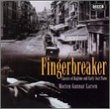
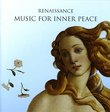
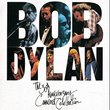
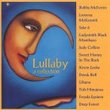
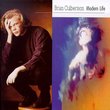
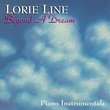
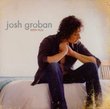
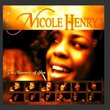
![Man on Fire [Original Motion Picture Soundtrack]](https://nationalbookswap.com/cd//m/36/5436/705436.jpg)
